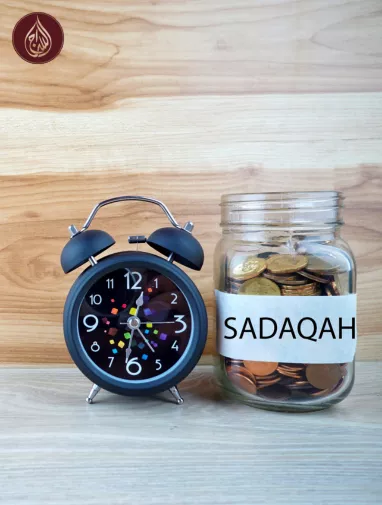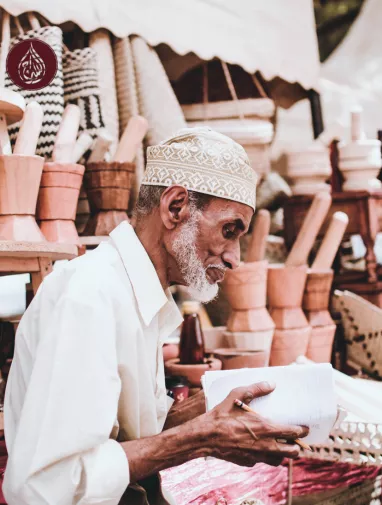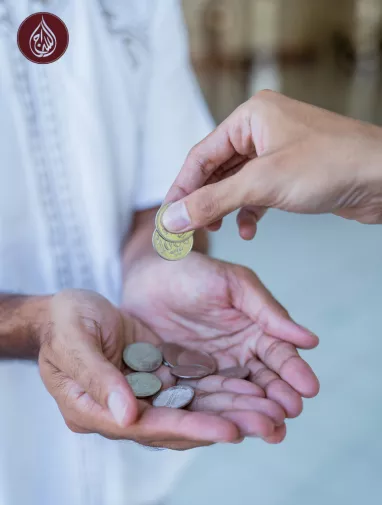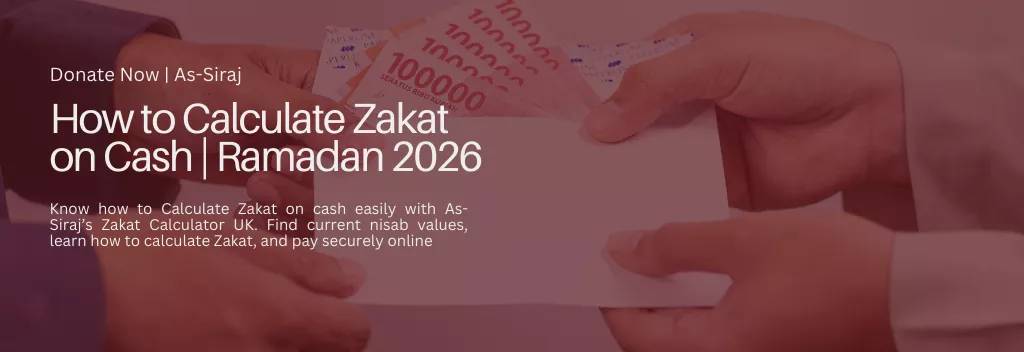In Islam, charity is a vital part of fulfilling spiritual duties and supporting the community. Sadaqah and Lillah are two fundamental forms of charity, each carrying distinct meanings and purposes. The difference between Sadaqah and Lillah lies in the intention behind the donation and the way it is given. Sadaqah is voluntary charity, where Muslims can give out of goodwill to help those in need, and it can be used for various purposes..
On the other hand, Lillah refers to charity that is given solely for the sake of Allah, usually designated for specific projects, such as building mosques or supporting religious education. Understanding this difference between Sadaqah and Lillah allows Muslims to align their charitable actions with their spiritual intentions. At AS-Siraj, both forms of charity play a crucial role in supporting orphans, widows, and vulnerable communities, ensuring their needs are met while fulfilling important religious obligations.
Introduction: Understanding Sadaqah and Lillah in Islam
In Islam, charity is not just a good deed; it is a spiritual obligation. Sadaqah and Lillah are both forms of charity, but they differ in their purpose and how they are given. Sadaqah is voluntary and given with the intention of helping others without expecting anything in return, while Lillah refers to charity that is given purely for the sake of Allah.
These two types of charity are both highly valued in Islam. The Quran and Hadiths stress the importance of charitable donations in Islam as a way to purify one’s wealth and gain rewards. Understanding the distinctions between Sadaqah and Lillah allows Muslims to make choices that align with their intentions and faith.
What is Sadaqah? – A Deep Dive into Its Meaning and Significance
Sadaqah is a term used for voluntary charity that Muslims give to help others. It can take many forms, including Sadaqah Jariyah (ongoing charity), which provides continuous benefits. The act of giving Sadaqah is meant to bring you closer to Allah, purify your wealth, and support the community. Sadaqah is one of the Islamic forms of giving that has no minimum or maximum limit. You can give as little or as much as you want, depending on your ability.
The significance of charity in Islam cannot be overstated. The Quran encourages Muslims to give freely to the poor, especially when it comes to Sadaqah for poverty alleviation. It is believed that every act of Sadaqah brings rewards in both this world and the next. Sadaqah is a way of fostering compassion and empathy in the community, making it an essential part of Islamic teachings.
The Importance of Sadaqah in Islam: A Key Pillar of Charity
Sadaqah holds great importance in Islam because it is a means of purifying your wealth and helping others. It is an act of almsgiving in Islam, one that fulfills an individual’s responsibility toward the community and those less fortunate. Islamic charities for the needy depend on donations like Sadaqah to run their programs, from feeding the poor to supporting education and healthcare projects.
Through Sadaqah, Muslims contribute to their spiritual growth and demonstrate their commitment to Allah. As mentioned in the Quran, Sadaqah not only benefits the poor but also strengthens the bond within the community. The benefits of giving charity in Islam are far-reaching, impacting both the individual donor and society as a whole.
Types of Sadaqah: Exploring the Different Forms of Giving
There are many types of Sadaqah in Islam. These can range from Sadaqah Jariyah, which provides long-term benefits like building a school or well, to Sadaqah for orphans, which provides immediate relief to children in need. Sadaqah can also include donations to religious institutions, funding for Islamic charity events, or supporting humanitarian causes.
Each type of Sadaqah offers unique rewards and benefits. Some forms, like Sadaqah Jariyah, continue to provide benefits for years after the donation is made, which is why they are highly encouraged in Islam. The Quran teaches that giving to charity can lead to abundant blessings and protection from hardship.
How Much Sadaqah to Give: Guidelines and Recommendations
There is no fixed amount of Sadaqah to give, as it is based on what you can afford. While the concept of Zakat (obligatory charity) has a set amount, Sadaqah is voluntary and depends on your personal financial situation. Islam encourages giving Sadaqah regularly, even if it’s just a small amount. The key is consistency and sincerity in your giving.
It’s important to give Sadaqah with the right intention, seeking the reward of Allah. Guidelines for donating Sadaqah suggest that you should not give to the point of harming your own financial stability. The reward is in the intention behind the donation and not the amount.
AS-Siraj and the Role of Sadaqah in Supporting Orphans and Vulnerable Communities
At AS-Siraj Charity UK, Sadaqah plays a crucial role in supporting orphans, widows, and vulnerable communities. Sadaqah donations help fund various programs such as food drives, education for orphaned children, and healthcare services. The charity is committed to using the funds wisely and transparently to improve the lives of those in need.
Through Sadaqah for orphans, AS-Siraj ensures that every contribution goes toward making a meaningful difference. This reflects the core principles of Islamic charity, where every donation is seen as an investment in the well-being of the community.
What is Lillah? – Unveiling the Concept and Purpose
Lillah is another important form of charity in Islam, but it differs from Sadaqah. Lillah donation meaning refers to giving charity purely for the sake of Allah, without expecting any worldly reward. Unlike Sadaqah, which can be given for general purposes, Lillah is usually given for specific projects, like building a mosque or supporting religious education.
The purpose of Lillah donations is to fulfill religious duties and support causes that benefit the Muslim community. Lillah in Islam helps ensure that charitable efforts remain aligned with the goals of the religion, particularly the spiritual growth of the donor.
The Importance of Lillah: How It Helps Fulfill Religious and Social Obligations
Giving Lillah holds a special place in Islam because it represents an act of giving for Allah’s sake. It’s not about the donor’s personal benefit but rather about supporting causes that further the goals of Islam. Lillah donations are an essential part of fulfilling social and religious obligations, especially for projects that serve the broader community.
By contributing to Lillah, Muslims ensure that their acts of charity align with the teachings of Islam. It also strengthens their connection with Allah, as giving for the sake of Allah is seen as a purifying act.
Types of Lillah: Various Forms of Donations for Allah’s Sake
Similar to Sadaqah, Lillah can take many forms. Lillah donations for humanitarian causes may support projects like building schools, providing clean water, or funding medical care. These acts of charity are essential for addressing the long-term needs of the Muslim community and beyond.
Each type of Lillah is an opportunity for Muslims to serve Allah through charity. Whether it’s for a mosque construction or a community health program, the reward for giving Lillah is immense in the eyes of Allah.
How Much Lillah to Give: Understanding the Limits and Guidelines
Lillah does not have a set amount like Zakat or Sadaqah, and the amount given depends entirely on the donor’s capacity. Islam encourages giving Lillah generously, but it should not put the giver in financial hardship. The key is to give with the sincere intention of helping others and seeking the pleasure of Allah.
There are no specific guidelines for donating Lillah, but it’s important to ensure that the funds are directed toward projects that align with Islamic values and will benefit the community.
Sadaqah vs Lillah: Key Differences You Should Know
The main difference between Sadaqah and Lillah lies in their intent and purpose. Sadaqah is voluntary charity that can be given for a wide range of causes, while Lillah is charity given solely for the sake of Allah, often for specific projects like building mosques or supporting religious education.
Sadaqah vs Lillah: While both forms of charity are highly valued in Islam, Lillah is considered more focused and intentional, as it is given with the sole aim of pleasing Allah. In contrast, Sadaqah can be used for more general charitable purposes.
Which is Better: Sadaqah or Lillah? – A Comparative Analysis
Determining whether Sadaqah or Lillah is better depends on the situation and the intention behind the donation. Both forms of charity offer great rewards in Islam, but Lillah is often considered a more focused act of worship because it is given solely for the sake of Allah. Sadaqah, on the other hand, is more flexible and can be given for a wide range of causes.
Ultimately, the better option depends on the donor’s intentions and their desire to fulfill specific religious obligations. Both forms of charity play crucial roles in Islamic charitable acts.
What Does Sadaqah Mean in the Context of AS-Siraj?
At AS-Siraj Charity UK, Sadaqah is used to support orphans and vulnerable families in the UK and abroad. The charity relies on Sadaqah donations to fund essential programs such as food distribution, educational support, and healthcare services. By donating to AS-Siraj, you can help improve the lives of those in need while fulfilling your religious obligations.
Fulfill Your Religious Obligation with AS-Siraj: Supporting Charities Through Sadaqah and Lillah
By donating to AS-Siraj Charity UK, you not only support vulnerable communities but also fulfill your religious obligation of giving Sadaqah and Lillah. Your contributions help provide vital resources and support to those in need, aligning with Islamic principles of compassion and generosity.
Frequently Asked Questions (FAQs)
What is the difference between Sadaqah and Lillah?
Sadaqah is voluntary charity that can be given for various causes, while Lillah is charity given specifically for the sake of Allah, often for designated projects such as building mosques or educational institutions.
How does Lillah work in Islam?
Lillah is given purely for the pleasure of Allah and is not intended for personal gain. It supports religious and community projects, ensuring the benefits go toward fulfilling Islamic obligations.
How much should I donate for Sadaqah?
There is no fixed amount for Sadaqah; it is given voluntarily based on the donor’s ability. The key is sincerity and consistency, with donations made to support those in need.
How is Lillah different from Zakat?
While Zakat is obligatory and has a set amount (2.5% of savings), Lillah is voluntary and given with the sole intention of pleasing Allah, without a prescribed minimum or maximum.
Can I donate Lillah to support orphans?
Yes, Lillah donations for humanitarian causes like supporting orphans are highly encouraged. Giving for the welfare of orphans aligns with Islamic teachings and brings immense rewards from Allah.
Conclusion
Understanding the difference between Sadaqah and Lillah allows Muslims to make informed decisions when donating to charity. Whether it’s Sadaqah for poverty alleviation or Lillah for long-term projects, each donation has a significant impact on society and is rewarded by Allah. Through AS-Siraj Charity UK, your donations will go directly toward making a meaningful difference in the lives of those in need.






